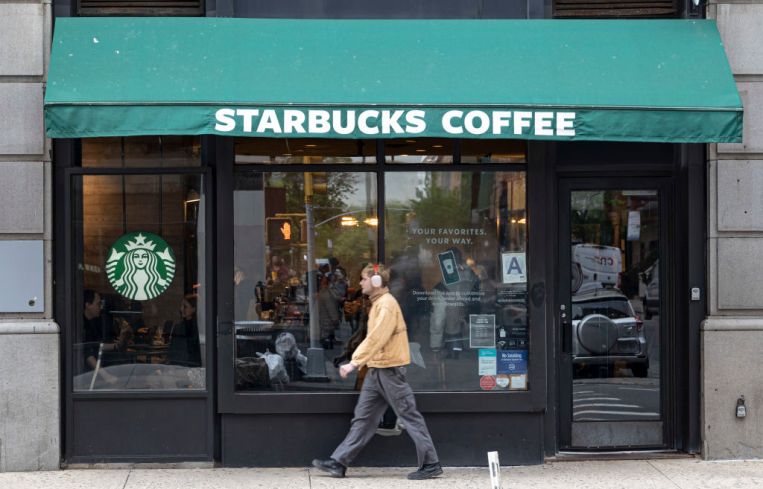Number of Chain Stores in NYC Dips 3 Percent in 2023
By Rebecca Baird-Remba December 12, 2023 6:00 am
reprints
The number of chain stores in New York City has declined 3.4 percent this year, after a steep dip in 2020 and two years of modest growth, according to the Center for an Urban Future’s (CUF) annual “State of the Chains” report.
The nonprofit found that the number of chain stores in the five boroughs in November 2023 was still 13.8 percent lower than it was in late 2019, or 1,097 stores short of that pre-pandemic benchmark. All told, the city had 7,700 chain stores last month, compared to 7,970 in November 2022.
More than half of the retailers that CUF tracked in its 2019 report have fewer locations in the city than they did pre-pandemic, and 11 percent of chains around before the pandemic have since shuttered all of their New York City stores.
All eight of the city’s largest chain retailers — Dunkin’, Starbucks, Metro by T-Mobile, Subway, Duane Reade, McDonald’s, Baskin Robbins and T-Mobile— have fewer locations than they did in 2019. Many of those retailers have dramatically slashed their number of New York City locations both this year and over the past three years.
Jonathan Bowles, CUF’s executive director, said he “was surprised to see the steep decline in chain stores, and there was a pullback in every borough. It just really underscores the real challenges ahead for retail in New York.”
Bowles blamed the contraction of major brands in the city on the continued growth of e-commerce, rising operating costs, and retail theft (though reports of “organized” shoplifting might have been overblown).
“Coming out of the pandemic, people were so much more accustomed to shopping online, for really almost everything, including things you used to go to Duane Reade or CVS to get,” he said.
In 2023, the retailers that shrank the most in the city included T-Mobile, which closed 62 stores; Rite Aid, which shuttered 55 stores, or half of its Big Apple locations, in the wake of bankruptcy; Subway, with 39 closures; Duane Reade, with 16; and Bed Bath & Beyond, which closed all 13 New York City stores after filing for bankruptcy. Hale & Hearty Soups also shuttered all of its 15 locations.
Donut shop Dunkin’ was once again the largest retailer in the city, with 619 stores, with a net loss of just one location in 2023. Starbucks was in second place with 322 stores, adding six this year, followed by Metro by T-Mobile with 269 locations and Subway with 215 locations.
ZIP codes that saw the biggest declines in chain stores included Brooklyn Heights and Downtown Brooklyn, along with the areas around Hudson Yards, Penn Plaza and Herald Square, each of which lost 13 stores. They were followed by SoHo and Greenwich Village, which both lost 10 stores.
Most of the chains adding stores in the city were food and beverage-oriented, with Nathan’s Famous, Popeyes, Taco Bell, Buffalo Wild Wings, Domino’s, Paris Baguette, Joe Coffee, Baskin-Robbins and Nuts Factory adding anywhere from three to 15 stores apiece.
Still, Bowles pointed out that fast-casual food purveyors aren’t expanding like they were last year and pre-pandemic.
“I think there’s something about remote and hybrid work that has affected a lot of different retailers, and certainly chain retailers,” he said. “I think the people coming three days a week to the office may not be enough to give fast-casual restaurants the sales they need to justify New York City rents. If people are working from home those two days a week, I don’t know if they’re all going out for lunch like they would near a Manhattan office.”
He added that, particularly for drugstores and apparel retailers, shoplifting is “tacked on to the very real issues of online shopping and high rents. Theft is happening at what’s already a challenging time for retailers.”
Rebecca Baird-Remba can be reached at rbairdremba@commercialobserver.com.



